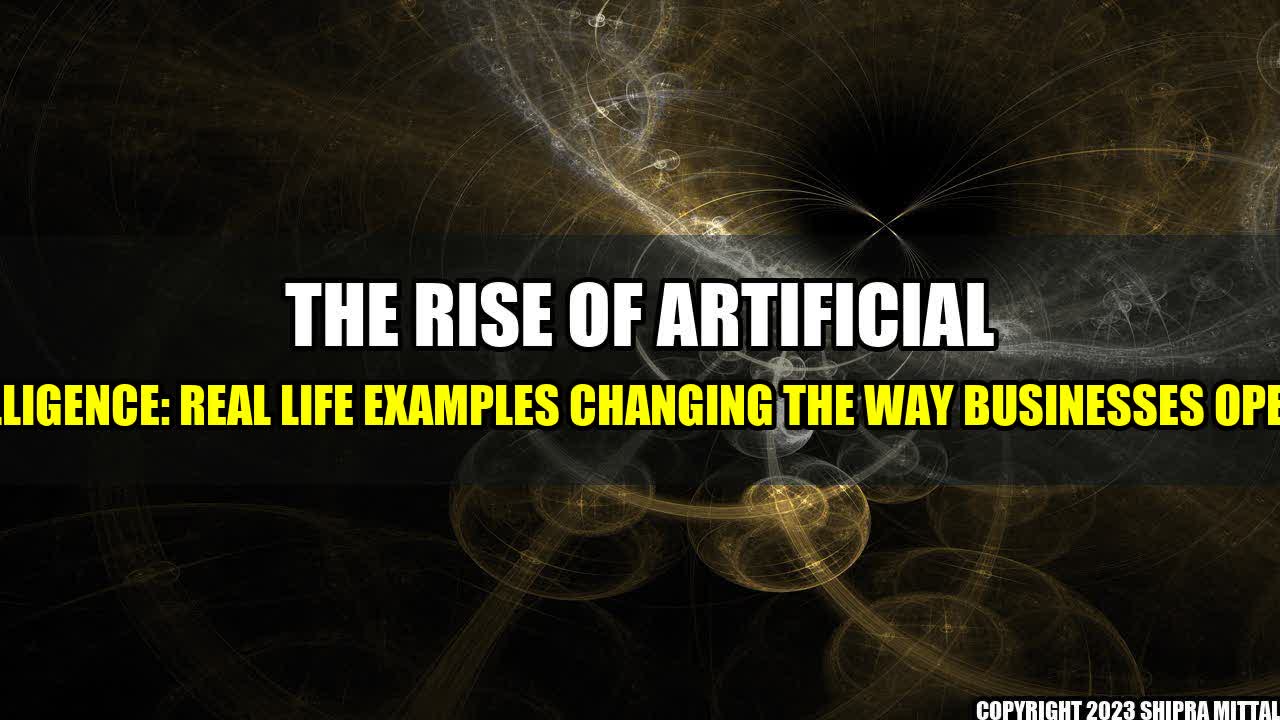Artificial intelligence (AI) is rapidly transforming the way businesses operate. From healthcare to finance, the use of AI is becoming increasingly common in various industries. But what exactly is AI and how is it changing business as we know it? To answer this question, let's explore some real life examples of how AI is being used and its implications.
Imagine walking into your favorite retail store and being greeted by an AI-powered chatbot. This chatbot can suggest products based on your previous purchases and browsing history, making your shopping experience more personal and efficient. Or, consider a bank that uses AI to detect fraud in real time, reducing the risk of financial loss for both the bank and the customers. These are just a few examples of the power of AI that are changing the game for businesses.
But with great power comes great responsibility. As AI continues to advance, it's important to critically analyze its implications and consider the ethical implications of its use in business.
Real Life Examples
Let's dive deeper into some real life examples of how AI is being used:
- IBM Watson Health
IBM Watson Health uses AI to help diagnose and treat cancer patients. By analyzing patient data and medical literature, Watson provides personalized treatment recommendations to doctors, leading to improved outcomes for patients.
- Salesforce Einstein
Salesforce Einstein uses AI to help sales teams better understand customer needs and preferences. By analyzing customer data and interactions, Einstein provides insights and recommendations to sales teams, resulting in increased sales and better customer experiences.
- DARPA
DARPA is using AI to develop unmanned submarines that can navigate and explore the ocean without human intervention. These submarines can collect data and perform tasks such as mapping underwater terrain, conducting environmental research, and even detecting enemy ships.
Implications and Critical Comments
The use of AI in business has significant implications, both positive and negative. On the one hand, AI can improve efficiency, accuracy, and personalization, leading to increased profits and better customer experiences. On the other hand, there are concerns around the ethical implications of using AI, such as bias, privacy, and job displacement.
For example, the bias of AI algorithms has been well-documented, with studies showing that certain groups are more likely to be negatively affected by AI than others. Additionally, the use of AI in hiring and workplace decision-making has been criticized for perpetuating bias and discrimination.
It's important for businesses to critically evaluate the use of AI and consider the ethical implications of its implementation. While AI can be a powerful tool, it's important to use it responsibly and considerately.
Conclusion
The rise of AI is transforming the way businesses operate, with real life examples showcasing its power and potential. However, it's important for us to critically examine the ethical implications of AI and use it responsibly. By doing so, businesses can reap the benefits of AI while ensuring a fair and just society.
- AI is transforming the way businesses operate, leading to increased efficiency and personalization.
- The ethical implications of AI must be considered, including bias, privacy, and job displacement.
- By using AI responsibly, businesses can reap the benefits while ensuring a fair and just society.
References and Further Readings
- Harvard Business Review: Artificial Intelligence for the Real World
- McKinsey & Company: How Artificial Intelligence Can Deliver Real Value to Companies
- The New York Times: A.I. Is Ready for Business. Are Businesses Ready for A.I.?
- #artificialintelligence
- #AI
- #business
- #realifeexamples
- #companies
